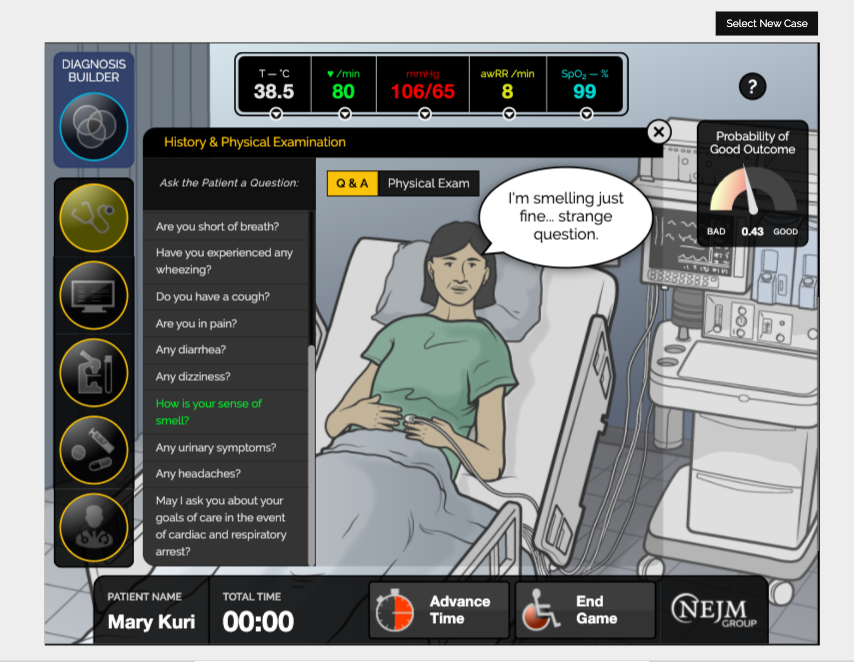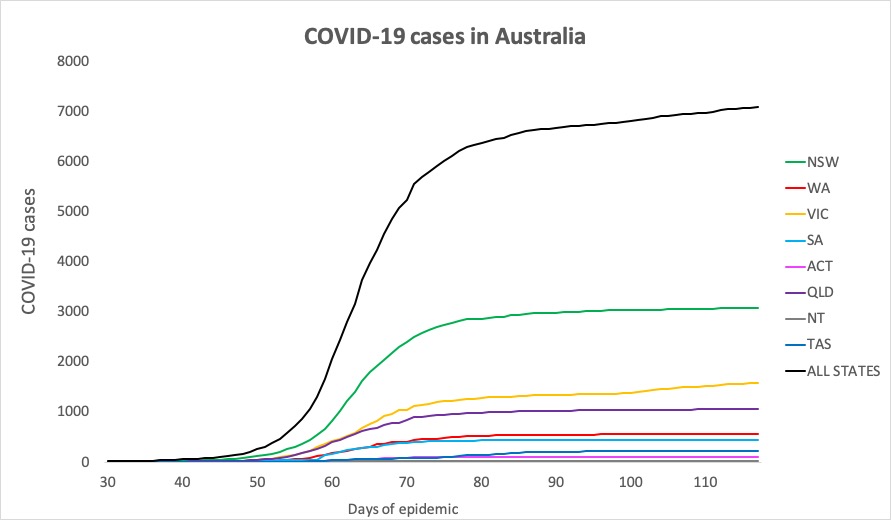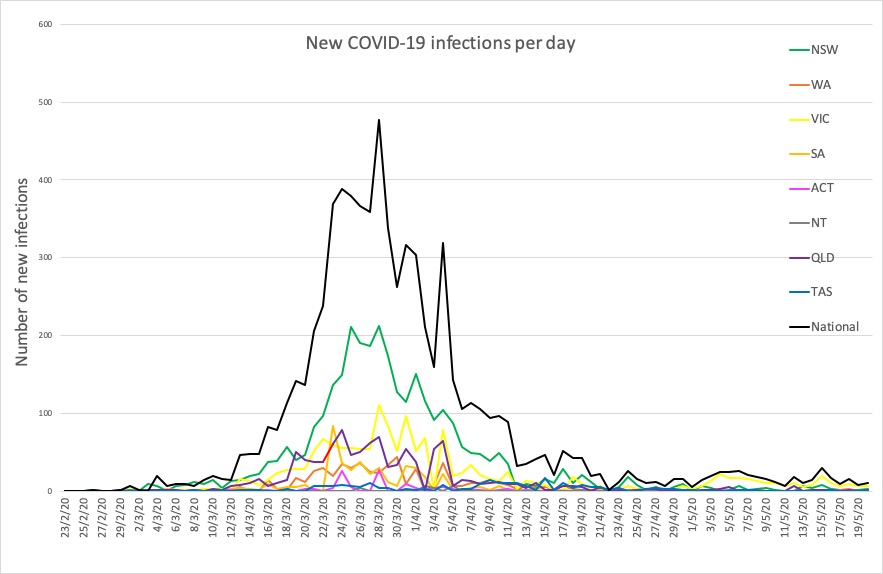A Perth doctor has been fined $37,800 for 15 infringements of the Therapeutic Goods Act for allegedly unlawfully advertising therapeutic COVID-19 products.
Welcome back to the The Medical Republic‘s live COVID-19 blog.
If you have any comments, tips, or feedback, drop me an email at bianca@biancanogrady.com.
The latest
- Perth doctor cops $37,800 fine from the TGA for allegedly advertising COVID-19 therapeutic products.
- Uganda deploys rapid COVID-19 testing at the border. Australian states – take heed?
- Try your hand at treating a virtual patient with COVID-19, courtesy of a treatment simulator from NEJM.
- A Perth doctor has been fined $37,800 for 15 infringements of the Therapeutic Goods Act for allegedly unlawfully advertising therapeutic COVID-19 products. The goods were apparently not included on the Australian Register of Therapeutic Goods, and the actions also violated the Therapeutic Goods Advertising Code which forbids health professionals for endorsing therapeutic goods in an advertisement.
In case there is any confusion about what is or isn’t allowed under the Therapeutic Goods Act, the TGA linked to its March 24 warning to advertisers and consumers about illegal advertising related to COVID-19.
- As Australia’s states and territories trade barbs over the opening – or not – of state borders, they might consider the example of Uganda. This East African nation has set up a purpose-built laboratory at the main border crossing with neighbouring Tanzania, to test all truck drivers coming into the country for COVID-19 using two rapid testing machines on site.
The nation, which so far has had 260 confirmed cases of COVID-19, has seen a rise in cases among truck drivers, hence the decision to focus testing on this group. The tests will deliver a result in around 45 minutes.
- Want to get tooled up on how to deal with a COVID-19 patient, but haven’t seen any in real life (which is, let’s face it, a happy problem to have)? The New England Journal of Medicine has created an online COVID-19 treatment simulator which features virtual patients – complete with snarky responses to some questions – ranging from a young woman with mild symptoms to an older man with comorbidities who’s going downhill fast.
The interface allows you to ask questions, check their medical history, order tests and imaging, order treatments, and consult with specialists.
TMR gave it a spin and was gently reminded by the interface that one should not order a patient to be intubated without having actually built a working diagnosis, which goes to show why we’re writers and not doctors.

- The Medical Republic‘s latest podcast is live! Now instead of spending even more time staring at a computer screen, you can enjoy the dulcet tones of TMR‘s Felicity Nelson and Francine Crimmins, accompanied by COVID-19 blogger Bianca Nogrady, as we rehash the biggest COVID-19 stories of the past week.
For example, the Lancet has published an editorial asking voters not to elect Trump in November. Two studies try to answer the question of the true seroprevalence of COVID-19 in different populations. Australian researchers have estimated that the overall rate of asymptomatic COVID-19 presentations is around 16%. And Sweden’s approach of relying on herd immunity may have shortened life expectancy of its citizens by 2-3 years. That – and more! – in this episode of The Medical Republic podcast.
- The RACGP has spoken out against the rise in on-demand telehealth-only business since the expansion of the telehealth and telephone MBS items, voicing concerns about the lack of continuity of care, privacy issues and technical capabilities.
These businesses typically rely on quick patient turnover, which leaves no time for discussions of preventive health and longer-term health and wellbeing, the organisation said in a statement.
“Some of these services are potentially providing sub-standard and inappropriate care,” said RACGP president Dr Harry Nespolon. “They are taking advantage of understandable anxieties in the community about contracting COVID-19 and expanding their operations.”
Dr Nespolon stressed the importance of patients consulting with their usual GP during the pandemic, highlighting issues with having multiple medical records and patient notes that may not be synchronised, which could lead to delays in diagnosis, misdiagnosis, or unnecessary investigations.
“Fragmenting services and providing episodic rather than continuous care is a terrible outcome for public health.
The Medical Republic publisher Jeremy Knibbs wrote recently about the ‘fast-food’ approach to care that is provided by companies such as Medinet. He pointed out that the opportunistic stance taken by some telehealth operators was aimed at collected the ‘how-hanging fruit’ of patients who want immediate service instead of seeing their regular GP.
Speaking to TMR reporter Penny Durham for this story on so-called ‘McTelehealth’, AMA NSW president Dr Kean-Seng Lim has also criticsed the ‘call centre’ model of telehealth for favouring convenience over quality, saying there was very little accountability.
- Organ transplantations are down by more than 90% in France and 50% in the United States during the COVID-19 pandemic, with a strong association seen between COVID-19 hotspots and a decrease in organ procurement, a study has found.
“As nations adjust to new realities driven by the coronavirus disease 2019 (COVID-19) pandemic, many health-care providers, institutions, and patients are concerned about the potential effect that COVID-19 will have on organ donation and transplantation,” researchers wrote in the Lancet.
They analysed organ procurement and transplantation data from two federal agencies in France and the United States, and found that as COVID-19 infections increased, solid-organ transplantations decreased. The reduction was most evident for kidney transplants, but also affected heart, lung and liver.
The authors commented that during the pandemic, health care decision-makers were likely making some difficult choices about how to deploy limited medical resources.
“These choices could be especially devastating for the thousands of patients in need of an organ transplant.”
- Here are today’s confirmed COVID-19 infection figures from around Australia, to 9pm yesterday.
We’ve finally ticked over a sorrowful milestone of 100 deaths from COVID-19. The ABC has done a lovely story putting faces and names to some of those lost to this virus.
National – 7079, with 100 deaths and 6444 recovered
ACT – 107
NSW – 3081
NT – 29
QLD – 1058
SA – 439
TAS – 228
VIC – 1580
WA – 557


Disclaimer: The content on the Medical Republic COVID-19 blog is independently created by Medical Republic without input from Boehringer Ingelheim Pty Ltd. The views, information, or opinions expressed on the Medical Republic COVID-19 blog are Medical Republic’s own and do not necessarily represent those of Boehringer Ingelheim Pty Ltd. Boehringer Ingelheim Pty Ltd is not responsible for and does not verify the accuracy of any content on the Medical Republic COVID-19 blog.



